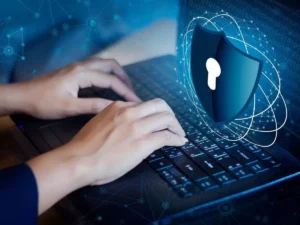In recent times, discussions around TheJavaSea.me leaks and the term AIO-TLP have been circulating online. These leaks have raised concerns about data security, potential breaches, and the implications for users who may have been affected. This article explores what TheJavaSea.me leaks entail, what AIO-TLP refers to, and the broader impact of such incidents.
What is TheJavaSea.me?
TheJavaSea.me appears to be a platform or website associated with various online resources, tools, or data-sharing activities. While its exact nature remains debated, some claim it deals with software, private data access, or even underground digital content. Due to its presence in leak-related discussions, it has gained attention in cybersecurity circles.
Understanding AIO-TLP: What Does It Mean?
The term AIO-TLP is often associated with leaked data, hacking communities, or security breaches. Breaking it down:
- AIO stands for “All-In-One”, which typically refers to comprehensive tools or collections in various tech-related domains.
- TLP stands for “Traffic Light Protocol”, a classification system used in cybersecurity to share sensitive information in a controlled manner. The four levels of TLP (White, Green, Amber, and Red) dictate how information should be distributed.
When paired together as AIO-TLP, it could indicate an all-in-one collection of data or tools with specific sharing restrictions, possibly leaked from secured sources. However, without official confirmation, its exact meaning remains speculative.
What Do TheJavaSea.me Leaks Contain?
Leaks from sites like TheJavaSea.me often include:
- Compromised Credentials – Usernames, passwords, and account details from various online platforms.
- Private Databases – Sensitive records from companies, government organizations, or forums.
- Software or Tools – Cracked software, security testing tools, or proprietary programs.
- Internal Communications – Emails, chat logs, or private discussions from affected platforms.
If TheJavaSea.me is involved in any such leaks, it could pose significant risks to individuals and organizations alike.
Security Risks and Implications
The potential risks of these leaks include:
- Identity Theft – Stolen personal information can be used for fraudulent activities.
- Account Takeovers – If credentials are leaked, attackers can gain access to social media, banking, or work-related accounts.
- Reputational Damage – Organizations whose data is exposed may suffer trust issues with customers.
- Cybersecurity Threats – Leaked tools or exploits can be used to launch cyberattacks on vulnerable targets.
For individuals and businesses, staying informed about leaks is crucial to taking preventive measures.
How to Protect Yourself from Data Leaks
If you suspect your data may be included in a leak, take these steps:
- Check for Exposure – Use services like “Have I Been Pwned” to see if your email or passwords have been compromised.
- Change Passwords Immediately – If your credentials are leaked, update them using strong, unique passwords.
- Enable Two-Factor Authentication (2FA) – Adds an extra layer of security to prevent unauthorized access.
- Monitor Financial Activity – Check your bank statements for any suspicious transactions.
- Stay Informed – Follow cybersecurity news to be aware of new leaks and threats.
Final Thoughts
The TheJavaSea.me leaks and the mention of AIO-TLP highlight the ongoing challenges of digital security. Whether these leaks involve sensitive databases, tools, or private information, they underscore the importance of vigilance in the online world.
As cyber threats evolve, individuals and businesses must take proactive measures to safeguard their data. By staying informed and implementing best security practices, you can reduce the risks associated with potential leaks and unauthorized data exposure.
Frequently Asked Questions (FAQ) About TheJavaSea.me Leaks & AIO-TLP

With increasing concerns about online data leaks, many people are searching for information on TheJavaSea.me leaks and AIO-TLP. Below are some frequently asked questions to help clarify the topic.
1. What is TheJavaSea.me, and why is it linked to leaks?
TheJavaSea.me appears to be a website or online platform mentioned in discussions about leaked data, hacking tools, or underground digital content. While the exact nature of the site remains unclear, it has been linked to possible breaches, unauthorized data access, or leaked tools circulating in cybersecurity forums.
2. What does AIO-TLP stand for?
AIO-TLP is believed to stand for:
- AIO (All-In-One) – A collection of various tools, software, or leaked data in one package.
- TLP (Traffic Light Protocol) – A classification system used in cybersecurity to control how sensitive information is shared.
When combined, AIO-TLP may refer to a leaked or unauthorized collection of security-related resources or data. However, without official confirmation, its exact purpose remains uncertain.
3. What kind of information has been leaked?
Leaks related to TheJavaSea.me may include:
- Compromised login credentials (emails, usernames, passwords).
- Database dumps from various websites or services.
- Private tools, exploits, or scripts used in cybersecurity or hacking.
- Financial records or payment information (if included in the breach).
- Confidential communications such as emails or internal chat logs.
If you suspect your data is involved, it’s important to take immediate security measures.
4. How can I check if my data has been leaked?
You can check for leaked credentials using security tools like:
- Have I Been Pwned (https://haveibeenpwned.com/) – Check if your email has appeared in data breaches.
- DeHashed (https://www.dehashed.com/) – A paid service to search for leaked personal data.
- Leaked Database Forums – Though not recommended, some forums share breach details (proceed with caution).
If your information appears in a leak, change your passwords and enable two-factor authentication immediately.
5. Who is behind these leaks?
It is difficult to determine exactly who is responsible for TheJavaSea.me leaks. Cybersecurity breaches can be the work of:
- Hackers looking to sell or expose sensitive information.
- Insiders (employees or ex-employees) leaking internal data.
- Cybercriminal groups conducting large-scale data theft operations.
- Automated bots or scrapers collecting publicly available data.
Authorities and cybersecurity experts often investigate such breaches, but tracking down the culprits can be challenging.
6. Is it illegal to access leaked data?
Yes. Accessing, sharing, or downloading leaked personal data without permission is illegal in many countries. Even if data is freely available online, using it for malicious purposes (e.g., fraud, hacking, blackmail) is a crime.
If you encounter leaked data, report it to the affected organization or cybersecurity authorities instead of distributing it.
7. What should I do if my personal information is leaked?
If your data has been compromised, follow these steps:
Change passwords immediately – Use strong, unique passwords for each account.
Enable two-factor authentication (2FA) – Adds extra security to your accounts.
Monitor bank and credit card activity – Look for unauthorized transactions.
Be cautious of phishing scams – Attackers may try to use your leaked info to trick you.
Consider a credit freeze – If financial data is exposed, prevent fraud by freezing your credit.
8. How can businesses protect themselves from leaks?
Organizations can prevent data leaks by:
- Regularly updating security software and applying patches.
- Using encryption for sensitive customer and employee data.
- Implementing access controls to restrict who can view important files.
- Training employees on cybersecurity best practices.
- Conducting regular security audits to identify vulnerabilities.
Companies should also have an incident response plan to react quickly if a data breach occurs.
9. Will affected users be notified if their data was leaked?
In many countries, companies are legally required to notify users if their data has been compromised in a breach. However, not all organizations follow these rules, especially if they operate in unregulated industries.
If you hear about a potential leak involving a service you use, check official company statements and security news sources for updates.
10. Can leaks like this be stopped?
While it’s impossible to prevent all data breaches, individuals and businesses can take steps to reduce risk and respond quickly when leaks occur. Cybersecurity professionals and ethical hackers work to improve security measures, but cybercriminals are constantly evolving their tactics.
Staying informed and practicing good security habits are the best ways to protect yourself from future data breaches.
Final Thoughts
The TheJavaSea.me leaks and discussions around AIO-TLP highlight the growing issue of data security in the digital world. Whether you’re an individual user or a business, understanding how leaks happen and taking proactive measures can help minimize risks.
If you think your data has been exposed, act quickly to secure your accounts and personal information. Cyber threats are always evolving, so staying vigilant is the best defense against online risks.
Stay safe, stay informed, and always prioritize cybersecurity
